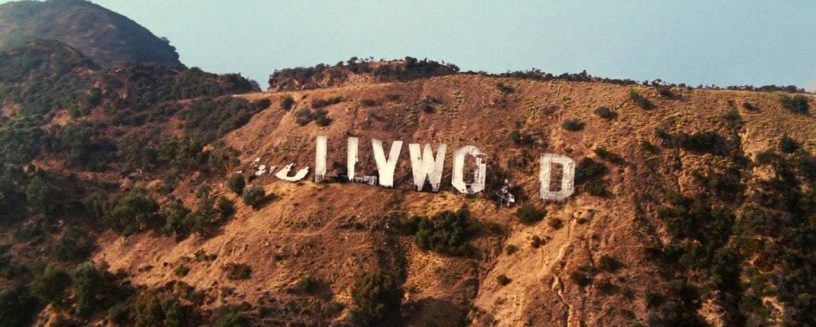Hollywood’s impact on societies, popular culture and the movie industry is undeniable. The question is how the institution establishes its power and continues to maintain it. There are many factors contributing to the success of Hollywood, from its history to the support it received from the U.S. government during the war eras. How does it continue then?
Argo tells the story of how six American hostages were saved by a CIA agent with the help of Hollywood during the Iranian revolution in 1979. The political agenda behind the movie is obvious in that the viewer is confronted with a stereotypical representation of Iran whereas the Americans are the saviors of the day. Putting this political aspect aside, we will focus on Hollywood’s role in this plot scheme and how it is represented in the movie as a humorous yet functioning industry.
First of all, when analyzing the symbolic representation of Hollywood, the first image that comes to mind is the Hollywood sign that is shown as crumbling to pieces. The Hollywood sign is a cliché indicator used in many movies. However, this time the sign is not what the audience is used to seeing. The affect is that Hollywood is not so great at the moment. It is conveying the message to the audience that not much is to be expected from the industry. However it is also seen that the CIA has men in Hollywood that they work with. In fact, their mission will rely mostly on these men to save the hostages. This is where the irony lies in the movie. When the mission in saving the hostages turns out to be successful with the cooperation of the institutions, the signified message shifts: that Hollywood is great after all.
Another technique the movie uses in representing Hollywood is the film within film trope. Argo is the name of a sci-fi movie that never got filmed. The aim now is to pretend that the movie will be filmed and by creating a fake movie within the movie, the emphasis on Hollywood is strengthened. The movie’s political tone shifts to a humorous one with the scenes containing Lester Siegel (Alan Arkin) and John Chambers (John Goodman) as the producers of the fake Argo movie. They even come up with an inside joke about what Argo means repeating it throughout: ‘Argo fuck yourself’. These two men are successful names in the industry who are well aware of the ridiculous aspects of Hollywood. They repeatedly make fun of the notions of bad acting, pretence and lies that constitute the industry. For instance, when the CIA agent Mendez (Ben Affleck) goes to meet Chambers, he asks him about the current movie he is working on. Chamber says that the target audience will hate it and when Mendez asks who the target audience is, he answers everyone with eyes. He is actually making a statement about how Hollywood movies appeal to everyone but at the same time is critical about the emptiness of the movies. Another criticism scene is when Chambers tells Mendez how he will fit right in Hollywood because he will pretend to be a big shot without actually doing anything. These humorous criticisms increase the impact of the ending. By gradually lowering the expectations of the audience, the success in the end actually fixes the damage of the criticisms carried out. The ridiculous notions of Hollywood actually help save the day. So once again: Hollywood is not that bad after all.
Consequently, alongside the Americanism in the movie there is also a subtle Hollywood propaganda throughout. Humorous slogans, conversations and criticisms are carried out but in the end Hollywood wins. In the end, America wins.
















Leave a Reply